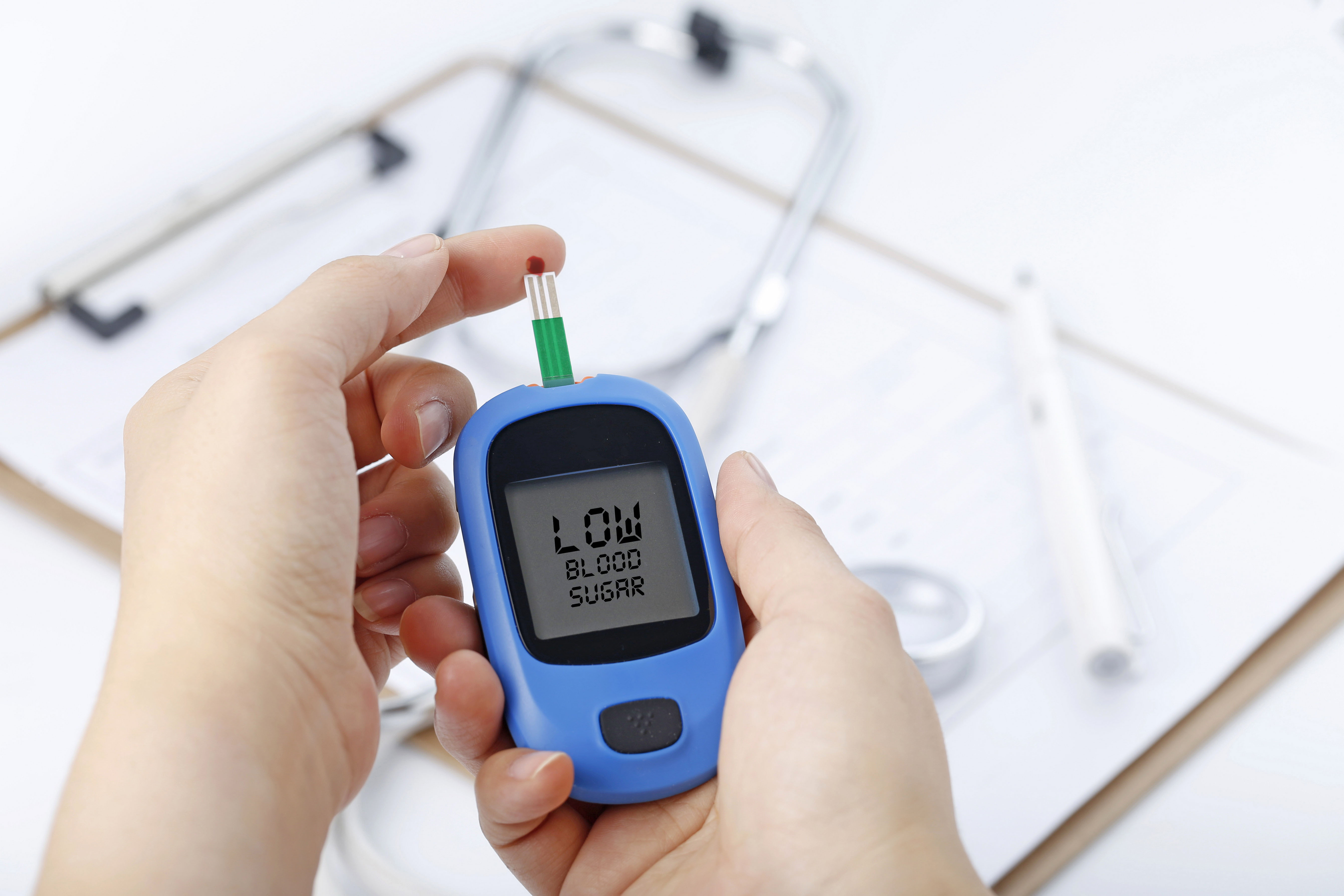









Free Shipping (WM) | Sign Up Biobay Membership for Free 50 Points & Exclusive Benefits
Nerve pain can be a challenging condition to manage. Many people seek natural remedies to ease their discomfort. Dietary supplements are one option that some find helpful for nerve-related issues. Vitamins and minerals may help relieve neuropathy symptoms in some cases. B vitamins, fish oil, and antioxidants are among the supplements that researchers have studied for their potential benefits. These nutrients may support nerve health and reduce inflammation. It's important to talk with your doctor before trying any new supplements. While some people find relief, the effectiveness can vary. Your healthcare provider can advise you on which options might be safe and suitable for your situation.
You might be wondering, what is diabetic neuropathy? Diabetic Neuropathy is a type of nerve damage that can occur in people with diabetes. High blood sugar levels over a prolonged period can injure nerves throughout the body, but diabetic neuropathy most commonly affects nerves in the legs and feet. There are different types of diabetic neuropathy, including peripheral, autonomic, proximal, and focal neuropathy, each affecting different parts of the body and causing a variety of symptoms.

Diabetic neuropathy is classified into four main types, each affecting different parts of the body and presenting with distinct symptoms:

Dietary supplements play a key part in helping manage chronic nerve pain. These natural aids can offer relief when used alongside other treatments.
Vitamins and nutritional supplements may help ease neuropathic pain. Some options to think about are:
- Curcumin
- Zinc
- Magnesium
- Vitamin C
- B vitamins
Your diet can also impact pain levels. Eating the right foods might reduce symptoms. Dietary changes and supplements are becoming more common in pain care.
Many people find current pain drugs hard to take. The drugs often don't work well enough. This is why natural options are gaining interest.
When picking supplements, look for high-quality products. Talk to your doctor before starting anything new. They can help you choose safe options that won't clash with other treatments.
Remember, supplements aren't a cure-all. They work best as part of a full treatment plan. This might include medicine, therapy, and exercise.

Diabetic neuropathy is a serious complication of diabetes that affects your nerves. It can cause pain, tingling, and numbness in various parts of your body, impacting your daily life.
Diabetic neuropathy is nerve damage caused by diabetes. It typically affects your feet and legs first but can spread to your hands and arms. Common symptoms include:
- Numbness or reduced feeling in affected areas
- Tingling or burning sensations
- Sharp pains or cramps
- Increased sensitivity to touch
- Muscle weakness
- Problems with balance and coordination
These symptoms often worsen at night. You might also experience digestive issues, urinary problems, or changes in blood pressure due to nerve damage.
High blood sugar levels are the primary cause of diabetic neuropathy. Over time, excess glucose in your blood can damage nerve fibres. Other factors that increase your risk include:
- Duration of diabetes: the longer you've had it, the higher your risk
- Poor blood sugar control
- High blood pressure
- High cholesterol
- Obesity
- Smoking
- Alcohol abuse
Keeping your blood sugar levels within target ranges is crucial for preventing or slowing the progression of neuropathy.
Diabetic neuropathy can significantly affect your daily activities and overall quality of life. Pain and numbness in your feet can make walking difficult or increase your risk of falls. You might struggle with everyday tasks like buttoning clothes or writing.
Reduced sensation in your feet means you might not notice cuts or blisters, leading to infections. This can result in serious complications, including the need for amputation in severe cases.
Sleep disturbances due to pain can lead to fatigue and mood changes. Some people experience depression or anxiety as a result of chronic pain and limitations in their activities.

Certain dietary supplements may help ease the symptoms of diabetic neuropathy. These supplements can support nerve health and potentially reduce pain and discomfort.
Alpha-lipoic acid (ALA) is an antioxidant that can benefit those with diabetic neuropathy. It helps protect nerve cells from damage caused by free radicals.
ALA may improve nerve function and reduce pain associated with diabetic neuropathy. Studies have shown it can decrease burning, tingling, and numbness in the limbs.
The typical dosage ranges from 600 to 1,200 mg daily. However, you should consult your doctor before starting any new supplement regimen.
ALA is generally safe, but it may interact with certain medications. Side effects are rare but can include skin rash or stomach upset.
Vitamin B12 plays a crucial role in maintaining healthy nerves. It helps form the protective coating around nerves called myelin.
A deficiency in B12 can lead to nerve damage and worsen diabetic neuropathy symptoms. Supplementing with B12 may help reduce pain and improve nerve function.
The recommended daily intake for adults is 2.4 micrograms. However, higher doses may be necessary for those with a deficiency.
B12 is available in various forms, including:
- Oral supplements
- Sublingual tablets
- Injections
Your doctor can test your B12 levels and recommend the best form and dosage for you.
Omega-3 fatty acids, found in fish oil, may help reduce inflammation and support nerve health.
These healthy fats can potentially:
- Decrease nerve pain
- Improve nerve conduction
- Reduce oxidative stress
You can increase your omega-3 intake by eating fatty fish like salmon or taking fish oil supplements. A typical daily dose ranges from 1,000 to 2,000 mg.
When choosing a fish oil supplement, look for one that's high in EPA and DHA. These are the most beneficial forms of omega-3s.
Several other supplements may help manage diabetic neuropathy symptoms:
- Acetyl-L-carnitine (ALC): May improve nerve function and reduce pain.
- Magnesium: Helps regulate nerve signals and may reduce neuropathic pain.
- Vitamin D: Low levels are linked to increased neuropathy risk.
- Curcumin: Found in turmeric, it has anti-inflammatory properties.
- B vitamins (B6, thiamine): Support overall nerve health.
Benfotiamine, a fat-soluble form of thiamine, may be particularly beneficial. It can help reduce nerve damage caused by high blood sugar.
Always talk to your doctor before starting any new supplements. They can interact with medications or have side effects.

Several supplements show promise for easing nerve pain and improving nerve health. Research suggests some may reduce inflammation and oxidative stress. Others could help regulate blood sugar levels, which is important for nerve function.
Clinical studies have examined various supplements for neuropathic pain. Vitamin B12 has been tested for post-herpetic neuralgia and painful peripheral neuropathy. Results indicate it may provide relief for some patients.
Alpha-lipoic acid has also been studied extensively. Trials show it might reduce burning, pain, and numbness in diabetic neuropathy.
Acetyl-L-carnitine has demonstrated potential in several small studies. It appears to improve nerve function and reduce pain in diabetic neuropathy patients.
Omega-3 fatty acids have mixed results. Some trials show benefits for nerve pain, while others find no significant effect.
Certain supplements may support nerve health through multiple mechanisms. Antioxidants like alpha-lipoic acid can combat oxidative stress, which damages nerves.
B vitamins play crucial roles in nerve function. They help maintain the myelin sheath that protects nerve fibres. B12, in particular, is essential for proper nerve signalling.
Magnesium and zinc contribute to nerve health by regulating neurotransmitter activity. They may also reduce inflammation, which can irritate nerves.
Omega-3 fatty acids have anti-inflammatory properties. They might help calm overactive nerves and reduce pain signals.
Supplements may be beneficial in many ways regarding nerve pain. They are generally well tolerated and have fewer side effects than most medications. Some, like B vitamins, are essential nutrients that the body requires anyway.
You can also easily combine most supplements with other therapies; therefore, it allows for multiple approaches to nerve pain management. However, the use of supplements does have some limitations. The effects may vary from individual to individual, so what works for one person may not work for another.
Cross-brands may have varying quality and dosage; thus it becomes hard to tell exactly what you are getting. Most importantly, supplements are not a panacea. They can help manage symptoms but do not address the underlying causes of nerve injury.

Taking supplements for nerve pain requires caution. You should be aware of potential side effects and drug interactions. It's crucial to follow recommended dosages for safety.
Some nerve pain supplements may cause mild stomach upset or headaches. B vitamins can lead to skin flushing or tingling sensations. Alpha-lipoic acid might cause a rash or lower blood sugar levels.
Capsaicin creams can irritate your skin. You might feel burning or stinging when you apply them. These effects usually lessen with continued use.
Fish oil supplements can thin your blood. This may increase your risk of bruising or bleeding. If you're taking blood thinners, talk to your doctor first.
Nerve pain supplements can interact with diabetes medicines. Benfotiamine, a form of vitamin B1, may affect blood sugar levels. If you take diabetes medications, monitor your blood sugar closely.
Alpha-lipoic acid can also lower blood sugar. You might need to adjust your diabetes medication doses. Always consult your doctor before starting any new supplement.
Some supplements may enhance the effects of diabetes drugs. This could lead to dangerously low blood sugar levels. Keep track of your symptoms and blood sugar readings.
|
Supplement |
Typical Dosage |
Usage Notes |
|
B Vitamins |
Follow the recommended daily allowance (RDA) unless advised otherwise by a doctor. |
Dosages vary depending on specific B vitamins; consult product labels for details. |
|
Alpha-Lipoic Acid |
Typically 600 to 1,200 mg daily. |
Start with a lower dose and gradually increase as needed and tolerated. |
|
Fish Oil |
1 to 2 grams per day is common. |
Higher doses may be required for nerve pain relief. |
|
Capsaicin Cream |
Applied 3-4 times daily. |
Use only a thin layer and wash your hands thoroughly after application. |
|
General Advice |
Always read product labels carefully. Start with the lowest effective dose and increase slowly if needed. |
Ensure proper dosage and monitor tolerance to avoid adverse effects. |
Before starting any supplement, talk to your doctor. They can check if the supplements are safe for you and won't interact with your current medicines.
Your doctor might suggest blood tests to check for vitamin deficiencies. This can help target your supplement use more effectively.
Ask about potential side effects and proper dosages. Some supplements can cause harm if taken in large amounts or for too long.
If you have chronic pain, a pain specialist might offer more tailored advice. They can help create a plan that includes supplements, medication, and lifestyle changes to manage your pain best.
When thinking about supplements for nerve pain, start with research. Look for vitamins B, C, and D, as well as minerals like zinc and magnesium. These may help reduce pain and improve nerve function.
Begin with low doses and increase slowly. Keep a diary to track your symptoms and any side effects. This will help you see what works best for you.
Pair supplements with other treatments. Physical therapy, regular exercise, and stress management can boost their effects. These activities may also help with related issues like anxiety and depression.
Remember, supplements aren’t a quick fix. Patience is key, as they take time to show results. If you're looking for the right supplements to address your needs, including options for nerve pain relief, feel free to explore our range of high-quality supplements, and learn how they may contribute to your journey towards gradual and lasting improvement.
Nerve pain supplements and vitamins play a crucial role in managing neuropathy symptoms. Certain nutrients can support nerve health and potentially alleviate discomfort.
Vitamin B12 supplements can improve nerve regeneration and reduce neuropathy symptoms. This vitamin is essential for maintaining the myelin sheath that protects nerves.
B1 (thiamine) and B6 (pyridoxine) also support nerve health. They help produce neurotransmitters and maintain proper nerve function.
Alpha-lipoic acid is a powerful antioxidant that may support nerve health and regeneration. It can potentially reduce oxidative stress and improve nerve function.
Acetyl-L-carnitine is another supplement that might aid nerve regeneration. It helps produce energy in cells and may protect nerves from damage.
Magnesium is shown to inhibit neuropathic pain sensation. It helps regulate nerve signals and may reduce pain intensity.
Omega-3 fatty acids have anti-inflammatory properties that could help ease nerve pain. They support overall nerve health and function.
Yes, vitamin deficiencies can contribute to nerve pain. Lack of B vitamins, especially B12, can lead to nerve damage and neuropathy symptoms.
Vitamin D deficiency has also been linked to increased nerve pain. Adequate vitamin D levels are important for nerve function and pain management.
